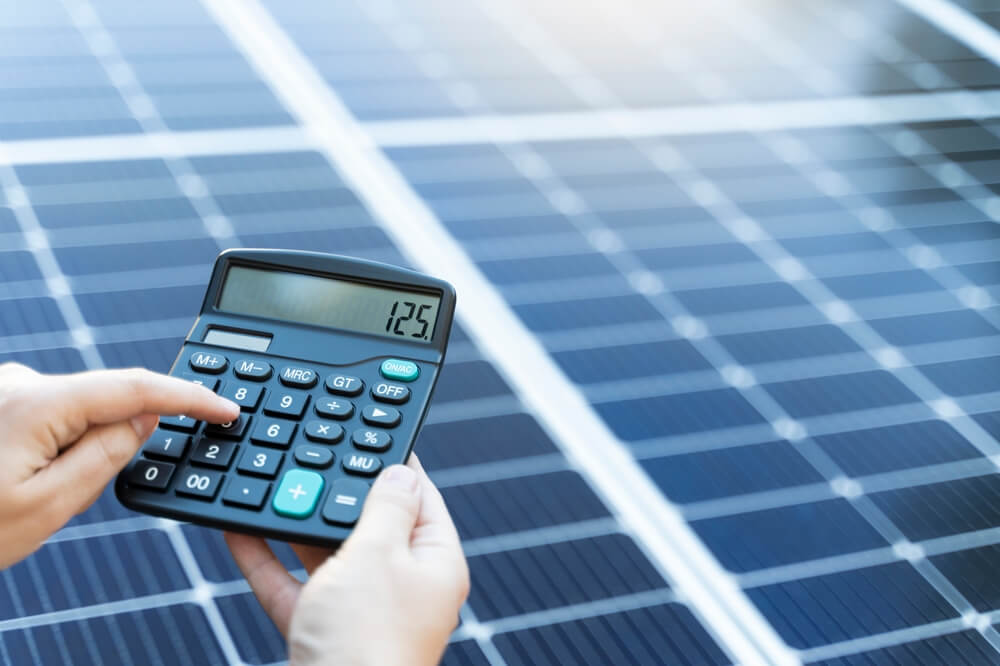
Solar energy is a clean renewable energy that your business can use to achieve substantial cost savings through lower annual electricity bills.
But how much can your business actually save by installing solar panels?
This blog post examines how solar panels can financially benefit your company while contributing positively to the environment. We’ll explore the initial investment, ongoing savings, and broader impacts of using solar electricity.
Whether you’re looking to cut expenses or move your business towards greener operations, understanding solar energy’s economic and environmental advantages will clarify why so many companies are making the switch.
Join us as we uncover the potential of solar panels to transform your business’s energy consumption and financial health.
Key Points
- How much can my business save using solar panels?
- What should I consider when it comes to solar savings?
- How does solar power save your business money?
How much can my business save using solar panels?
The average commercial property in the UK can reduce its electricity bills with solar panels, sometimes by thousands of pounds. This can majorly offset the initial investment in the solar system itself.
For example, a medium-sized business consuming around 25,000 kWh of electricity per year could save approximately £3,750 annually, assuming an average price of 15p per kWh.
The ROI for commercial solar installations can also be quite compelling. Given the upfront costs (which can range from £15,000 to £29,000 for a typical system size required by small to medium-sized businesses), the payback period often falls between 6 to 8 years. After this, the energy generated is essentially free, barring maintenance costs, which are typically low.
What should I consider when it comes to solar savings?
Investing in a solar array does involve potentially high upfront costs, but the long-term savings on energy bills can be significant. If you want to accurately estimate your potential savings, consider your current electricity usage and how much this is costing you in monthly energy bills.
Compare these figures against the energy production of a solar panel system, and you can project how much you will save on utility costs each month.
A solar array efficiently converts sunlight into electricity, directly reducing the amount of energy drawn from the grid and slashing energy costs. However, it’s also important to factor in the variability of utility costs, which are prone to increasing over time.
With a business solar installation, businesses can lock in some of their energy rates, providing a hedge against future price hikes in utility bills. This helps plan and budget more effectively and boosts the solar project’s ROI.
In conclusion, while the upfront costs of a solar array can be notable, the reduction in monthly and annual electricity bills provides a clear financial benefit. By reducing ongoing energy expenses, solar energy offers a compelling way to decrease overhead costs and increase savings over the installation’s lifespan.
How does solar power save your business money?
Several key factors can influence the potential savings from commercial solar panels. Understanding these helps business owners like you maximise your return on investment and achieve the most from your solar panel installation.
Energy Consumption
The amount of energy a business consumes directly affects the savings achievable with solar power. Larger electricity consumers will typically see lower energy bills.
Evaluating your business’s energy use patterns can help determine the best solar installation size to maximise annual savings.
Existing Cost of Electricity
The average cost of electricity in your area plays a huge role in determining the savings from switching to solar power. Areas with higher fossil fuel energy prices often find that solar power dramatically cuts energy costs. Solar energy savings will likely increase as energy prices rise, making solar panels an attractive investment for commercial property owners.
Tax Incentives and Rebates
Many local councils and government bodies offer tax incentives and rebates for renewable energy installations, helping to reduce the upfront installation costs of solar panels. These financial incentives make solar power more affordable and shorten the payback period, increasing the return on investment for business owners.
Increase in Property Value
Installing solar panels can increase the value of commercial properties. This rise in property value is an indirect financial benefit that complements the direct savings on energy bills. Business owners should consider the long-term value increase alongside the immediate energy cost savings when considering the financial impact of solar panel installation.
Maintenance Costs
While solar panels require relatively low maintenance, the occasional costs associated with cleaning and upkeep can affect net savings. Fortunately, modern solar panels’ long lifespan and durability mean maintenance expenses are generally minimal.
By carefully considering these factors, business owners can better estimate the financial benefits of solar panels, aligning renewable energy solutions with their strategic financial goals.
Embrace the power of commercial solar with Path Energy
Path Energy is your go-to partner for commercial solar energy solutions. Our solar solutions, tailored specifically for businesses, include high-quality solar panels, advanced solar batteries, and cutting-edge optimisation technology to improve energy efficiency.
Our premium solar solutions work together so your business enjoys a steady, clean energy supply and capitalises on solar’s financial benefits. With Path Energy, enjoy reliable, cost-effective energy solutions that prepare your business for a sustainable and financially sound future.
We can also help you secure funding for free business solar panels.